
Bayanga: The Heart of African Wilderness
Nestled in the lush rainforests of the Central African Republic, Bayanga offers an unrivaled glimpse into the heart of African wilderness. The town is the gateway to the Dzanga-Sangha Special Reserve, a haven for wildlife enthusiasts. Here, you can witness majestic forest elephants, lowland gorillas, and a myriad of bird species in their natural habitat. Bayanga is not just about wildlife; it is also rich in culture. The local Ba’Aka community offers an immersive experience into their traditional way of life. From learning about their unique hunting techniques to being mesmerized by their music and dance, Bayanga provides a rare cultural exchange that is both educational and inspiring. For the adventurous, Bayanga offers opportunities for guided jungle treks and boat trips on the Sangha River. These activities provide a closer look at the diverse flora and fauna and offer a tranquil escape from the hustle and bustle of everyday life. Whether you are an avid nature lover or simply looking to unwind in a serene environment, Bayanga is a destination that promises unforgettable memories.
Local tips in Bayanga
- Hire a local guide to enhance your wildlife viewing experience and gain insights into the local culture.
- Visit the Dzanga Bai, a large forest clearing, where you can observe forest elephants and other wildlife in a natural setting.
- Respect the local traditions and customs of the Ba’Aka community when participating in cultural activities.
- Pack light, breathable clothing and good quality insect repellent to ensure a comfortable visit.
- Bring cash, as credit card facilities are limited in Bayanga.
Bayanga: The Heart of African Wilderness
Nestled in the lush rainforests of the Central African Republic, Bayanga offers an unrivaled glimpse into the heart of African wilderness. The town is the gateway to the Dzanga-Sangha Special Reserve, a haven for wildlife enthusiasts. Here, you can witness majestic forest elephants, lowland gorillas, and a myriad of bird species in their natural habitat. Bayanga is not just about wildlife; it is also rich in culture. The local Ba’Aka community offers an immersive experience into their traditional way of life. From learning about their unique hunting techniques to being mesmerized by their music and dance, Bayanga provides a rare cultural exchange that is both educational and inspiring. For the adventurous, Bayanga offers opportunities for guided jungle treks and boat trips on the Sangha River. These activities provide a closer look at the diverse flora and fauna and offer a tranquil escape from the hustle and bustle of everyday life. Whether you are an avid nature lover or simply looking to unwind in a serene environment, Bayanga is a destination that promises unforgettable memories.
When is the best time to go to Bayanga?
Unmissable attractions to see
Dzanga Bai (The Village of Elephants)
Explore Dzanga Bai, a stunning nature preserve in the Central African Republic, home to majestic elephants and rich biodiversity.
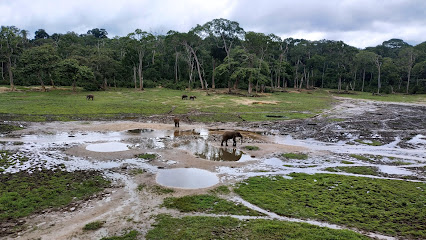
Dzanga Sangha Park HQ
Explore the stunning Dzanga Sangha Park HQ in the Central African Republic for an unforgettable wildlife adventure amid lush rainforests and vibrant cultures.

Markets, malls and hidden boutiques
Bangui-M'Poko International Airport
Discover the gateway to Central Africa at Bangui-M'Poko International Airport, your starting point for adventure and cultural immersion.
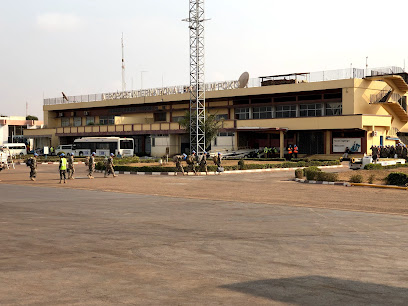
Relais des Chasses
Discover the culinary treasures of Bangui at Relais des Chasses, a charming restaurant and bed & breakfast offering authentic Central African flavors.
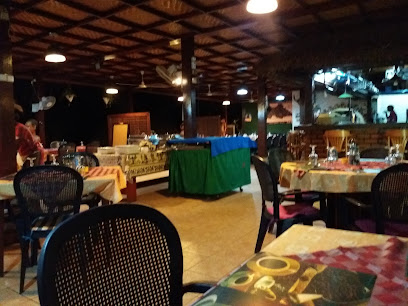
5 FOURCHETTES
Experience the rich flavors of Central Africa at 5 Fourchettes, a must-visit restaurant in Bangui for food lovers and adventurers.
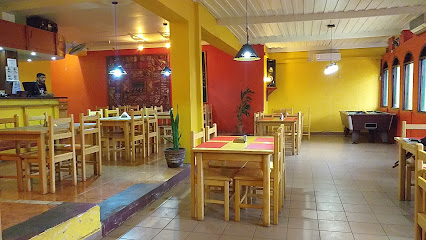
Hotel Levy's
Discover comfort and culture at Hotel Levy's, your ideal base for exploring the vibrant city of Bangui in the Central African Republic.

Cafrina
Experience the vibrant flavors of Bangui at Cafrina, where local cuisine meets warm hospitality in a cozy setting.
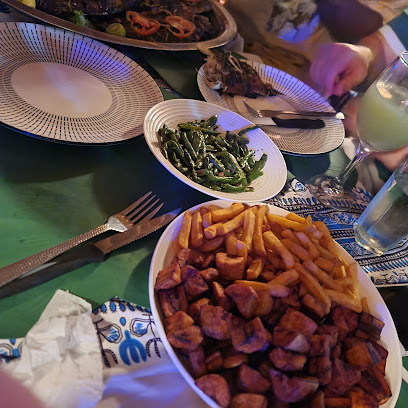
Restaurant Le M'
Experience the flavors of Central Africa at Restaurant Le M', a culinary haven in Bangui offering a blend of local and international cuisines.
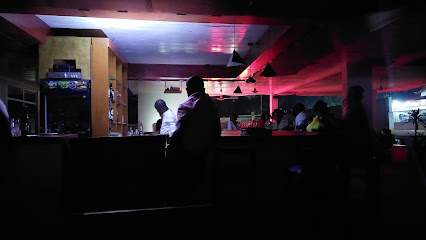
Corail
Explore the local flavors at Corail, a grocery store in Bangui, where shopping meets cultural discovery in the heart of Central Africa.
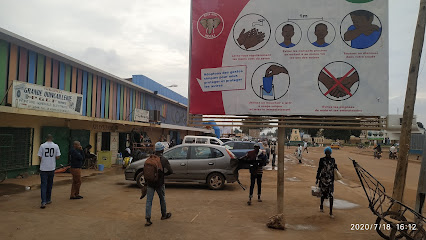
SANGO
Experience the vibrant flavors of Central Africa at SANGO, a must-visit restaurant in the heart of Bangui.
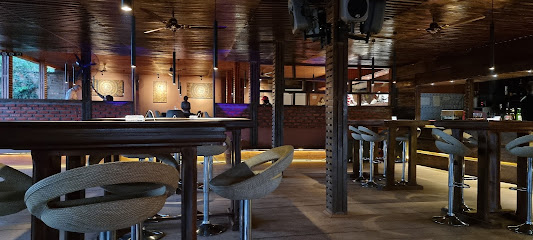
Bangui Mall
Discover the heart of shopping and local culture at Bangui Mall – a vibrant hub in the capital of Central African Republic.
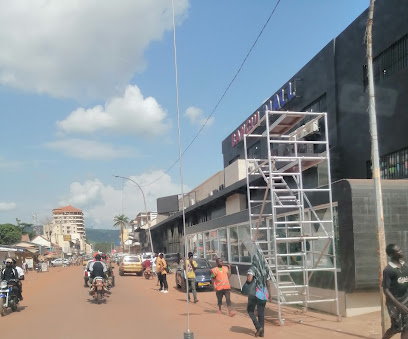
Chutes de Boali
Explore the breathtaking Chutes de Boali, a stunning waterfall in the heart of Central African Republic, surrounded by lush nature and adventure.
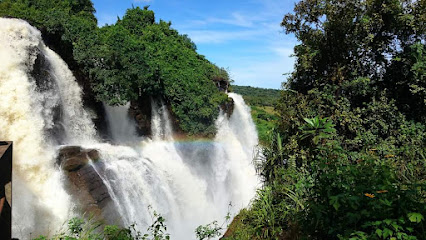
Marché Central
Experience the vibrant culture and unique beauty products at Marché Central, a must-visit market in Bangui, Central African Republic.
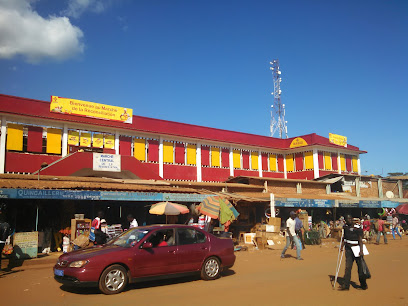
Central African Republic Travel and Tours
Discover the Central African Republic: A hidden paradise of wildlife, culture, and breathtaking landscapes waiting to be explored.
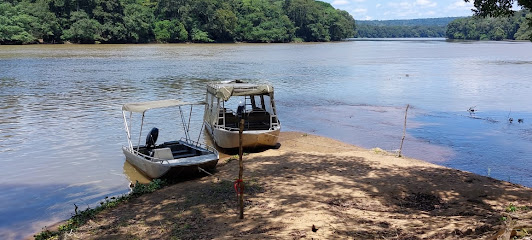
Sangha Lodge
Discover tranquility and natural beauty at Sangha Lodge in Djomo, a perfect forest retreat for nature lovers and adventure seekers alike.
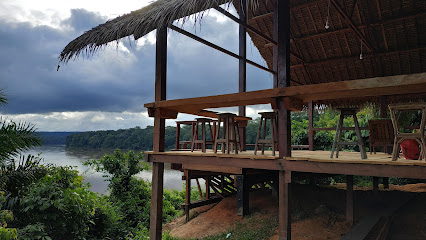
Doli Lodge
Discover serenity at Doli Lodge, your gateway to adventure and relaxation in the breathtaking landscapes of Bayanga, Central Africa.

Alimentation Oiseaux Volants
Discover local crafts and culinary delights at Alimentation Oiseaux Volants, a vibrant shopping mall in Yokadouma, Cameroon.
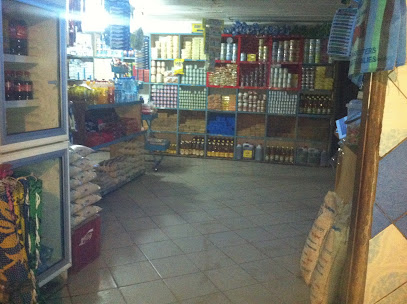
Essential bars & hidden hideouts
Relais des Chasses
Experience the best of Central African cuisine at Relais des Chasses, a cozy restaurant and bed & breakfast in Bangui.
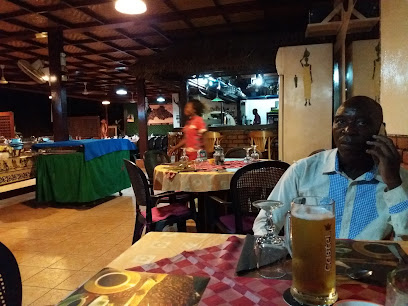
Cafrina
Discover the flavors of Central Africa at Cafrina, a must-visit restaurant in Bangui renowned for its authentic dishes and welcoming atmosphere.
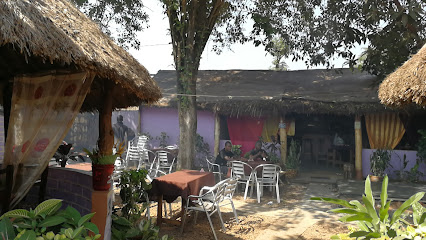
SANGO
Discover the vibrant flavors of Central African cuisine at SANGO, a culinary treasure in the heart of Bangui.
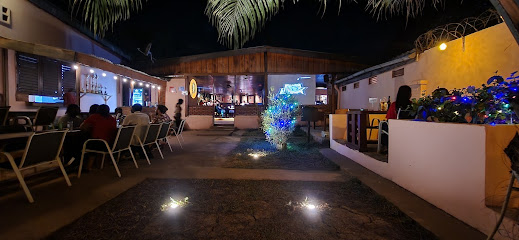
Sewa Bar
Experience the vibrant nightlife at Sewa Bar in Bangui, where refreshing drinks and lively music create an unforgettable atmosphere.
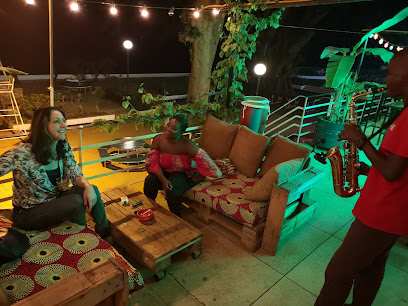
Le Balafon
Experience the vibrant nightlife of Bangui at Le Balafon, where great drinks and lively ambiance create unforgettable moments.
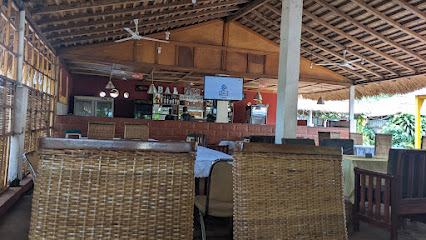
Doli Lodge
Discover the serene beauty and adventure opportunities at Doli Lodge in Bayanga, a perfect getaway in the heart of Central African Republic.

La Sirene
Discover La Sirene in Bangui for an authentic grill experience that highlights Central African flavors in a lively and welcoming atmosphere.
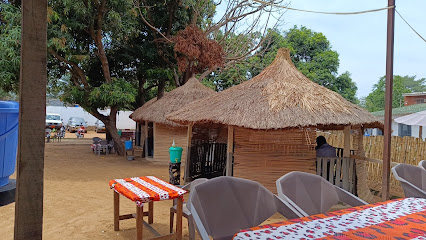
La Verdure
Experience the vibrant atmosphere of La Verdure, a must-visit bar in Bangui for relaxation and local flavor.
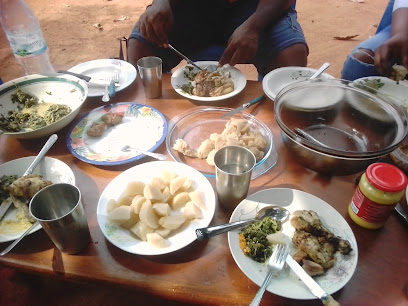
Moodbucks
Experience the vibrant flavors of Bangui at Moodbucks, where local culture meets culinary excellence in a charming atmosphere.
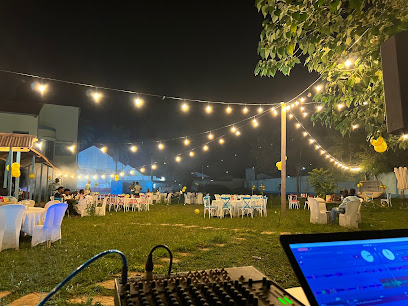
FUCHSIA Bar Lounge
Experience the vibrant atmosphere and refreshing cocktails at FUCHSIA Bar Lounge in Bangui, the perfect spot for relaxation and socializing.
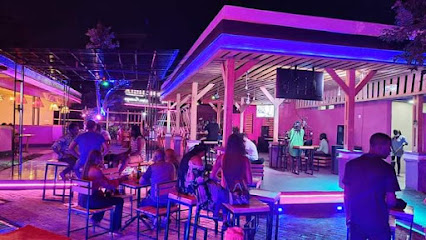
Bar Cite de la Joie
Discover the vibrant atmosphere and local culture at Bar Cite de la Joie, the perfect bar for tourists in Bangui.
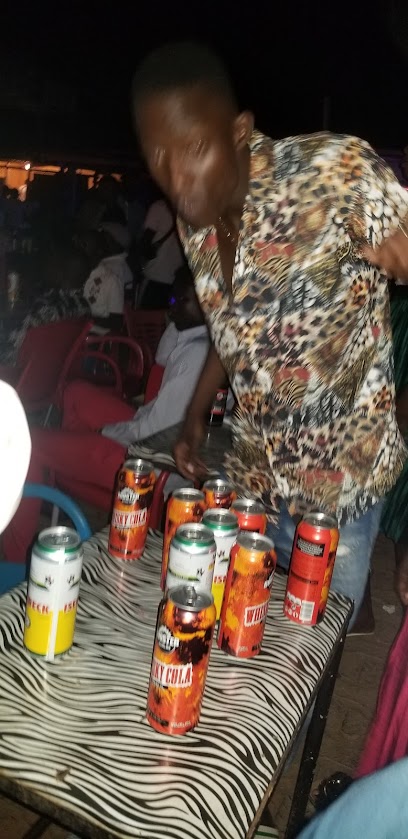
Zodiaque
Dive into the electrifying nightlife at Zodiaque, Bangui's premier nightclub known for its vibrant music and lively atmosphere.
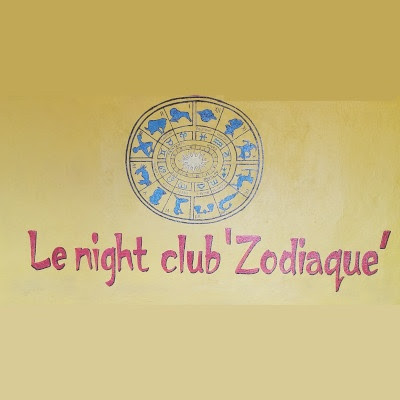
Carrefour ngatto bar
Experience the local nightlife at Carrefour Ngatto Bar, a vibrant spot in Yokadouma, Cameroon, offering refreshing drinks and a lively atmosphere.
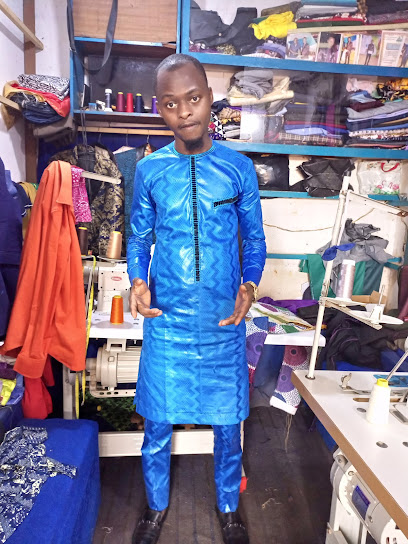
DIGBA LOUNGE (CASH 236)
Discover the vibrant nightlife at Digba Lounge, a lively bar in Bangui offering refreshing drinks and a welcoming atmosphere.
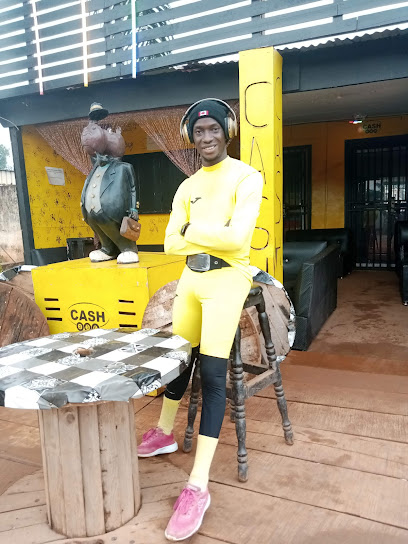
Local Phrases about Bayanga
-
- HelloMbala
[m-ba-la] - GoodbyeKwa na be
[kwa na be] - YesEe
[e] - NoTe
[te] - Please/You're welcomeMasa
[ma-sa] - Thank youMolongo
[mo-lon-go] - Excuse me/SorryTambola
[tam-bo-la] - How are you?O wuna na?
[o wa-na na] - Fine. And you?Guswa. O wuna na?
[gu-swa. o wa-na na] - Do you speak English?O gbangbala na Inglesa?
[o gbang-ba-la na in-gle-sa] - I don't understandA ka be na ko sambila
[a ka be na ko sam-bi-la]
- HelloMbala
-
- I'd like to see the menu, pleaseNga na kia na menu, masa
[nga na ki-a na me-nu, ma-sa] - I don't eat meatA ka be na ko kola na bea
[a ka be na ko ko-la na be-a] - Cheers!Bakusa!
[ba-ku-sa] - I would like to pay, pleaseNga na kia na komba, masa
[nga na ki-a na kom-ba, ma-sa]
- I'd like to see the menu, pleaseNga na kia na menu, masa
-
- Help!Sosola!
[so-so-la] - Go away!Boko mbi!
[bo-ko m-bi] - Call the Police!Kola ngbento!
[ko-la ng-ben-to] - Call a doctor!Kola mofuka!
[ko-la mo-fu-ka] - I'm lostNga na be na ko mbi
[nga na be na ko m-bi] - I'm illNga na be na ko mokwa
[nga na be na ko mok-wa]
- Help!Sosola!
-
- I'd like to buy...Nga na kia na...
[nga na ki-a na] - I'm just lookingNga na tia na tia
[nga na tia na tia] - How much is it?Tia mbele na ko sambila?
[ti-a m-be-le na ko sam-bi-la] - That's too expensiveBe na mbele na zimbala
[be na m-be-le na zim-ba-la] - Can you lower the price?O tia mbele na ko sambila?
[o ti-a m-be-le na ko sam-bi-la]
- I'd like to buy...Nga na kia na...
-
- What time is it?Kia mbele?
[ki-a m-be-le] - It's one o'clockZimba mbele ya ndako
[zim-ba m-be-le ya nda-ko] - Half past (10)Mbele ya ndako na mbat
[m-be-le ya nda-ko na m-bat] - MorningBela
[be-la] - AfternoonBela ya ndako
[be-la ya nda-ko] - EveningBela ndeko
[be-la n-de-ko] - YesterdayBela mbele
[be-la m-be-le] - TodayMbele
[m-be-le] - TomorrowMbele na mbat
[m-be-le na m-bat] - 1Ndako
[nda-ko] - 2Mbat
[m-bat] - 3Nzoi
[n-zoi] - 4Ne
[ne] - 5Moka
[mo-ka] - 6Moto
[mo-to] - 7Muna
[mu-na] - 8Nane
[na-ne] - 9Kenda
[ken-da] - 10Kumi
[ku-mi]
- What time is it?Kia mbele?
-
- Where's a/the...?Wuna mbele na...
[wu-na m-be-le na] - What's the address?Kia ngbento na?
[ki-a ng-ben-to na] - Can you show me (on the map)?O wuna na ko tia (na map)?
[o wa-na na ko ti-a (na map)] - When's the next (bus)?Kia mbele ya ndako ya soso?
[ki-a m-be-le ya nda-ko ya so-so] - A ticket (to ....)Nguema (ko ....)
[ngue-ma (ko)]
- Where's a/the...?Wuna mbele na...
History of Bayanga
-
Bayanga, nestled in the southwestern corner of the Central African Republic, is part of a region that has been home to various indigenous groups for millennia. The Ba'aka people, also known as Pygmies, are one of the most notable groups in this area. Their rich cultural heritage, traditional knowledge of the forest, and unique way of life have been integral to the region's identity. The Ba'aka have lived in harmony with the dense rainforests, practicing a semi-nomadic lifestyle that revolves around hunting, gathering, and fishing.
-
During the late 19th and early 20th centuries, the area now known as Bayanga fell under French colonial rule, as did much of what is now the Central African Republic. The French established control over the region, exploiting its resources and imposing new administrative structures. The colonial period brought significant changes to the local way of life, including the introduction of cash crops and new forms of labor. Despite these upheavals, traditional practices and cultures persisted, especially within indigenous communities.
-
One of the most significant developments in Bayanga's recent history is the establishment of the Dzanga-Sangha Special Reserve in 1990. This protected area was created to conserve the region's exceptional biodiversity, including its populations of forest elephants, gorillas, and other wildlife. The reserve covers approximately 4,143 square kilometers and has become a critical site for conservation and ecotourism. It is co-managed by the Central African Republic government and international conservation organizations, providing both environmental protection and sustainable development opportunities for local communities.
-
Bayanga, like much of the Central African Republic, faces numerous economic and social challenges. The region has struggled with poverty, limited infrastructure, and political instability. However, the community has shown resilience and adaptability. Initiatives aimed at boosting ecotourism, such as guided tours of the Dzanga-Sangha Special Reserve and cultural exchanges with the Ba'aka people, offer a way to improve local livelihoods while preserving the natural and cultural heritage.
-
Bayanga is rich with cultural traditions and festivals that reflect its diverse heritage. One of the most notable events is the annual Ba'aka festival, where the indigenous community showcases their traditional music, dance, and crafts. These festivals are not only a celebration of culture but also an opportunity to educate visitors about the Ba'aka's way of life and their deep connection to the rainforest. Such events help to foster a sense of pride and continuity among the local population.
-
Today, Bayanga is a vibrant community that serves as a gateway to the Dzanga-Sangha Special Reserve. The town has seen an influx of researchers, conservationists, and tourists drawn by its unique wildlife and cultural experiences. Efforts are ongoing to balance development with conservation, ensuring that Bayanga remains a place where nature and culture are celebrated and preserved for future generations. The local economy increasingly relies on ecotourism, which provides a sustainable alternative to traditional livelihoods that often rely on the exploitation of natural resources.
Bayanga Essentials
-
Bayanga is located in the Sangha-Mbaéré region of the Central African Republic. The nearest international airport is Bangui M'Poko International Airport in Bangui, approximately 510 kilometers away. From Bangui, you can take a charter flight to Bayanga's airstrip or opt for a long road journey, which can take around 10 to 12 hours depending on road conditions. Be sure to arrange transportation in advance, as options can be limited.
-
Bayanga is a small town, and many attractions are accessible on foot. For longer distances, local taxis and motorbike taxis (boda-bodas) are available. Renting a 4x4 vehicle is advisable for exploring the surrounding areas, especially if you plan to visit the Dzanga-Sangha National Park. Due to the remote location, public transport options are minimal, and private arrangements are often necessary.
-
The official currency in the Central African Republic is the Central African CFA franc (XAF). Cash is the preferred method of payment in Bayanga, as credit card facilities are limited. It is advisable to carry sufficient cash with you, as ATMs are scarce, and banking services are unreliable. Exchange your currency in Bangui before traveling to Bayanga.
-
Bayanga is generally considered safe for tourists, especially within the confines of the Dzanga-Sangha National Park. However, it is crucial to exercise caution and take standard safety precautions. Avoid walking alone at night and be aware of your surroundings. While violent crime is rare, petty theft can occur, so keep an eye on your belongings. Consult local authorities or your guide for the latest safety information.
-
In case of emergency, it is essential to have a local contact or guide who can assist you. The nearest medical facilities are basic, so travel insurance that includes emergency evacuation is highly recommended. For medical emergencies, head to the local health center or contact the nearest hospital in Bangui. Always carry a basic first aid kit and necessary medications.
-
Fashion: Do dress modestly, as revealing clothing is not culturally appropriate. Lightweight, long-sleeved clothing is recommended to protect against insects and the sun. Religion: Do respect local customs and traditions. While Bayanga is not overly religious, showing respect for local beliefs is important. Public Transport: Do negotiate fares before starting your journey. Don't expect a strict schedule, as transport operates on a more flexible, informal basis. Greetings: Do greet locals with a friendly handshake and a smile. Learning a few basic phrases in French or Sango can go a long way. Eating & Drinking: Do try local dishes and accept food offerings graciously. Don't drink tap water; always opt for bottled or purified water.
-
To experience Bayanga like a local, visit the local markets where you can buy fresh produce and handmade crafts. Engage with the local communities and participate in traditional activities, such as fishing or storytelling. Don't miss the chance to explore Dzanga-Sangha National Park, where you can see gorillas, forest elephants, and other wildlife. Hiring a local guide will enhance your experience and provide deeper insights into the area's culture and natural history.
Nearby Cities to Bayanga
-
Things To Do in Bertoua
-
Things To Do in Yaoundé
-
Things To Do in Bitam
-
Things To Do in Ebolowa
-
Things To Do in Ngaoundéré
-
Things To Do in Bafia
-
Things To Do in Foumban
-
Things To Do in Edea
-
Things To Do in Kribi
-
Things To Do in Bafoussam
-
Things To Do in Mbouda
-
Things To Do in Douala
-
Things To Do in Nkongsamba
-
Things To Do in Dschang
-
Things To Do in Mbini







